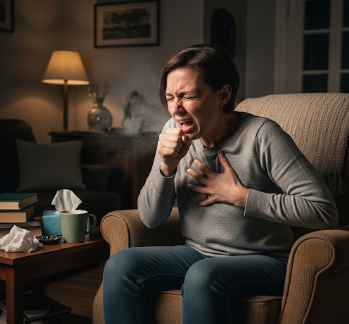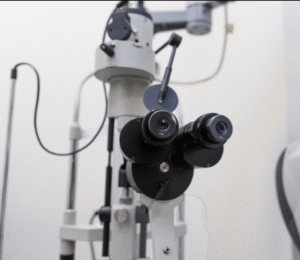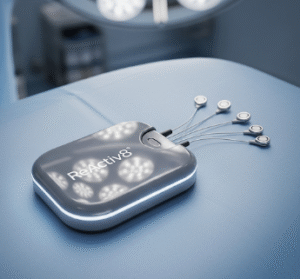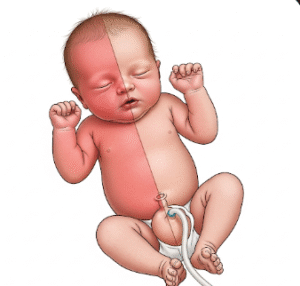Overview
A chronic cough is defined as a cough lasting more than eight weeks in adults or four weeks in children. Unlike an occasional or acute cough, chronic cough often signals underlying respiratory, systemic, or environmental issues. Common triggers include allergies, asthma, infections, or chronic conditions such as gastroesophageal reflux disease (GERD).
In South Korea, pulmonology and internal medicine clinics provide comprehensive evaluations, including imaging, laboratory tests, and specialized respiratory assessments, to identify the underlying cause and develop personalized treatment plans.
Key Facts
Highlights:
➡️ Chronic cough can be dry (non-productive) or wet (productive with mucus).
➡️ It may indicate respiratory infections, asthma, COPD, postnasal drip, or systemic disorders.
➡️ Persistent cough can affect sleep, work performance, and quality of life.
➡️ Evaluation often includes chest X-rays, lung function tests, and laboratory assessments.
➡️ South Korea provides advanced diagnostic tools and multidisciplinary care for chronic cough management.
What is Chronic Cough?
Chronic cough is a persistent cough lasting longer than expected for typical infections, usually more than eight weeks in adults.
Key characteristics:
- Duration: Continuous or intermittent over weeks or months
- Type: Can be dry, wet, or mixed depending on underlying pathology
- Associated symptoms: Wheezing, shortness of breath, postnasal drip, heartburn, or throat irritation
- Impact: May cause chest pain, fatigue, or social embarrassment
Chronic cough often serves as a signal for more serious underlying conditions, making proper diagnosis essential.
What Symptoms are Related to Chronic Cough?
Symptoms frequently accompanying chronic cough include:
- Persistent throat irritation or tickling sensation
- Excessive mucus production or phlegm
- Hoarseness or voice changes
- Shortness of breath or wheezing
- Heartburn or regurgitation (if GERD-related)
- Fatigue and sleep disruption
Highlights:
➡️ Symptoms help distinguish between respiratory, gastrointestinal, or allergic causes.
➡️ Chronic cough may lead to secondary symptoms such as sore muscles or headaches due to frequent coughing.
➡️ Persistent cough with blood or unexplained weight loss requires urgent evaluation.
What Causes / Possible Causes of Chronic Cough?
Highlights:
➡️ Respiratory Infections: Lingering viral infections, pertussis (whooping cough), or post-infectious cough.
➡️ Asthma or Cough-Variant Asthma: Chronic airway inflammation causing persistent cough without typical wheezing.
➡️ Chronic Obstructive Pulmonary Disease (COPD): Emphysema or chronic bronchitis can trigger productive cough.
➡️ Gastroesophageal Reflux Disease (GERD): Acid reflux irritates the throat and airway, causing chronic cough.
➡️ Postnasal Drip / Allergic Rhinitis: Mucus from nasal passages drains into the throat, stimulating coughing.
➡️ Medications: ACE inhibitors and certain drugs may induce persistent cough.
➡️ Serious Causes: Lung cancer, interstitial lung disease, or heart failure may rarely present with chronic cough.
➡️ Mechanism: Chronic cough results from irritation of the airway lining, inflammation, or hypersensitivity of the cough reflex.
When Should I See My Doctor?
Highlights:
➡️ If cough persists beyond eight weeks in adults or four weeks in children.
➡️ If accompanied by blood, chest pain, unexplained weight loss, or shortness of breath.
➡️ If cough interferes with sleep, work, or daily activities.
➡️ If over-the-counter treatments or home remedies do not relieve symptoms.
➡️ Early evaluation ensures correct diagnosis, targeted treatment, and prevention of complications.
Care and Treatment
Management of chronic cough depends on the underlying cause:
Highlights:
➡️ Symptomatic Relief:
- Cough suppressants for temporary relief
- Humidifiers and hydration to soothe irritated airways
➡️ Medication:
- Inhalers for asthma or COPD
- Proton pump inhibitors or antacids for GERD-related cough
- Antibiotics if bacterial infection is confirmed
- Antihistamines or nasal sprays for postnasal drip
➡️ Lifestyle Measures:
- Avoid smoking or secondhand smoke
- Manage allergies and environmental triggers
- Elevate head while sleeping if GERD is suspected
➡️ Supportive Care:
- Pulmonary rehabilitation for chronic lung conditions
- Speech therapy in rare cases to manage cough reflex sensitivity
➡️ Hospital Care: For severe, persistent, or complicated cases, South Korean hospitals provide advanced diagnostics and inpatient management.
Treatment Options in Korea
South Korea offers specialized care for chronic cough, including:
Highlights:
➡️ Pulmonology Clinics: Comprehensive assessment of respiratory causes using imaging, lung function tests, and lab investigations.
➡️ Allergy and ENT Centers: Diagnosis and treatment of postnasal drip and allergic causes.
➡️ Gastroenterology Clinics: Management of GERD-related cough with lifestyle and pharmacological interventions.
➡️ Multidisciplinary Approach: Collaboration among pulmonologists, ENT specialists, gastroenterologists, and primary care physicians.
➡️ Advanced Treatment Options: Targeted inhalers, endoscopic procedures, and rehabilitation programs.
➡️ Medical Tourism Support: Multilingual consultations, diagnostics, and treatment planning for international patients.













